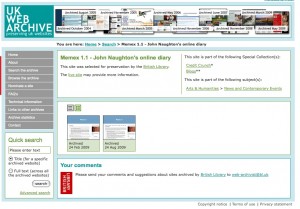Aw, shucks: the VC industry is in trouble — at least if this Technology Review article is to be believed.
The real problem is not complex: there’s too much venture capital, and there are too many venture capitalists, for the industry to be really profitable. The industry as a whole now has about $200 billion under management, more than twice what it did in 1998, and venture funds invested $20 billion to $30 billion a year for most of the past decade. And on the level of individual funds, huge amounts of capital combined with falling startup costs have, in Anderson’s words, made funds “musclebound”: a $500 million fund can’t make too many small investments, even if that’s what would make economic sense, because the partners don’t have the time to supervise hundreds of companies. (This is one reason, along with the desire to limit risk, that many VCs have started to wait until later rounds to invest.) In the absence of another bubble, there’s no way for new companies to generate profits big enough to provide a reasonable return on $20 billion to $30 billion a year. Kedrosky, for one, argues that for the industry to consistently generate competitive returns, annual investment and money under management need to fall by more than half. And while Wilson describes himself as “very optimistic” about the coming decade, he says that the industry “needs to return to the size and shape it was in the late ’80s and early ’90s.”
The interesting thing is that this diagnosis is not especially controversial. Most people in the industry think there’s too much money. It’s like traffic, though: everyone thinks there’s too much of that, but no one wants to take public transportation. And while in most businesses competition takes care of the problem by forcing the losers out, here winnowing takes much longer, because venture capital isn’t like the stock market: if you get disillusioned, you can’t just pull your money out of it. The limited partners who invest in venture capital funds make long-term, binding commitments to meet the “capital calls” of the general partners who manage the funds and make investments. This is, from the perspective of innovation, venture capital’s great strength: instead of needing a quick return, it can afford to build companies. Nonetheless, it creates what Wilson calls “a huge amount of latency in the system.” So even though the industry has been moving toward a more sensible balance between money under management and potential returns, it takes a long time to push underperformers out.
This suggests that the industry as a whole still has at least a few years of underperformance ahead.
Travellers in East Anglia are often puzzled by place names like “Adventurers’ Fen”. In fact they are throwbacks to the first wave of ‘Adventurer Capitalists’ — i.e. the people who put up the money to pay for the draining of the Fens.



